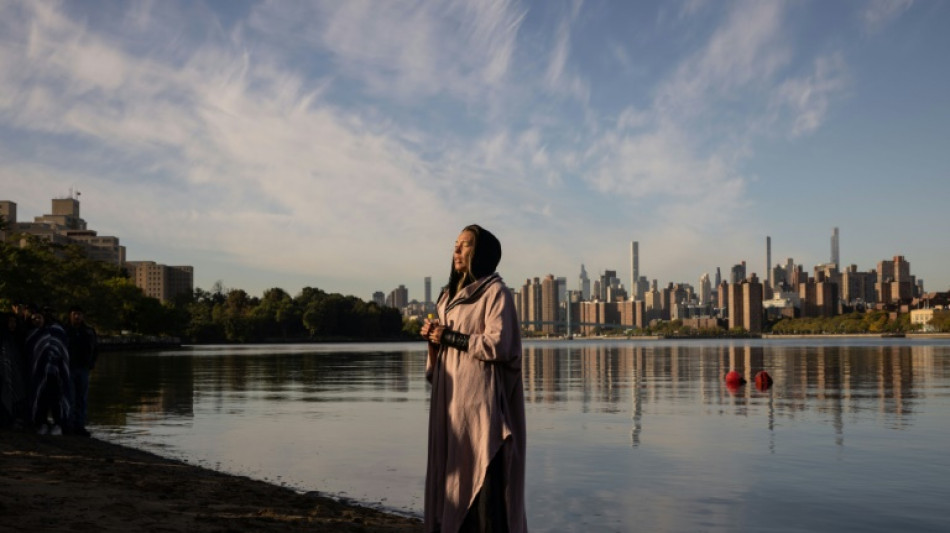
-
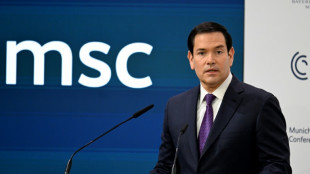 Rubio tells allies US and Europe 'belong together'
Rubio tells allies US and Europe 'belong together'
-
Snowboarding monk in spotlight after S. Korea's Olympic glory
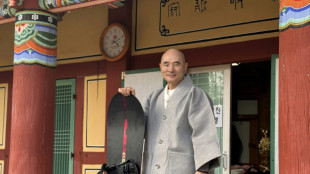
-
 Bangladesh's Tarique Rahman poised to be PM as Islamists concede
Bangladesh's Tarique Rahman poised to be PM as Islamists concede
-
What does Greenland's mining industry look like?

-
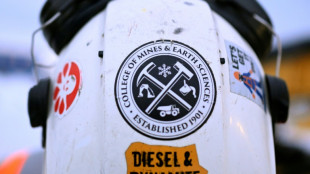 Greenland prepares next generation for mining future
Greenland prepares next generation for mining future
-
China top court says drivers responsible despite autonomous technology

-
 Sixers rookie Edgecombe leads 'Team Vince' to NBA Rising Stars crown
Sixers rookie Edgecombe leads 'Team Vince' to NBA Rising Stars crown
-
Rubio at Munich security meet to address Europeans rattled by Trump

-
 Medal-winner Sato says Malinin paid for 'toxic schedule'
Medal-winner Sato says Malinin paid for 'toxic schedule'
-
Carney offers support of united Canada to town devastated by mass shooting
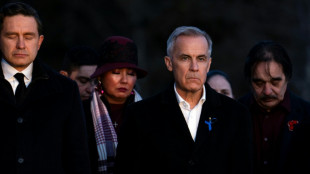
-
 All-in on AI: what TikTok creator ByteDance did next
All-in on AI: what TikTok creator ByteDance did next
-
Canada PM visits memorial for mass shooting victims as new details emerge

-
 Healthy Ohtani has Cy Young Award in sights
Healthy Ohtani has Cy Young Award in sights
-
One of Lima's top beaches to close Sunday over pollution

-
 'Nothing is impossible': Shaidorov shocks favourite Malinin to make history
'Nothing is impossible': Shaidorov shocks favourite Malinin to make history
-
Malinin wilts at Olympics as Heraskevych loses ban appeal

-
 Bhatia joins Hisatsune in Pebble Beach lead as Fowler surges
Bhatia joins Hisatsune in Pebble Beach lead as Fowler surges
-
Malinin meltdown hands Shaidorov Olympic men's figure skating gold

-
 Top seed Fritz makes ATP Dallas semis with fantastic finish
Top seed Fritz makes ATP Dallas semis with fantastic finish
-
Patriots star receiver Diggs pleads not guilty to assault charges

-
 Havana refinery fire under control as Cuba battles fuel shortages
Havana refinery fire under control as Cuba battles fuel shortages
-
Peru Congress to debate impeachment of interim president on Tuesday

-
 Snowboard veteran James targets 2030 Games after Olympic heartbreak
Snowboard veteran James targets 2030 Games after Olympic heartbreak
-
Costa Rica digs up mastodon, giant sloth bones in major archaeological find
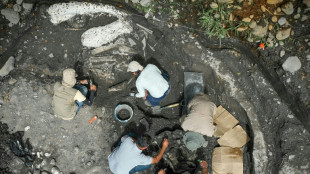
-
 Trump says change of power in Iran would be 'best thing'
Trump says change of power in Iran would be 'best thing'
-
Ukrainian skeleton racer Heraskevych loses appeal against Olympic ban

-
 Paris police shoot dead knife man at Arc de Triomphe
Paris police shoot dead knife man at Arc de Triomphe
-
Japan's Totsuka wins Olympic halfpipe thriller to deny James elusive gold

-
 Canada's PM due in mass shooting town as new details emerge
Canada's PM due in mass shooting town as new details emerge
-
Neto treble fires Chelsea's FA Cup rout of Hull

-
 Arbitrator rules NFL union 'report cards' must stay private
Arbitrator rules NFL union 'report cards' must stay private
-
Dortmund thump Mainz to close in on Bayern

-
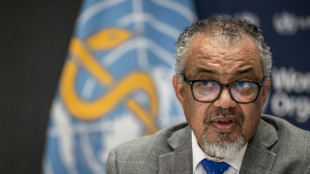 WHO sets out concerns over US vaccine trial in G.Bissau
WHO sets out concerns over US vaccine trial in G.Bissau
-
Skeleton racer Weston wins Olympic gold for Britain

-
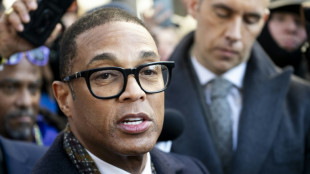 Ex-CNN anchor pleads not guilty to charges from US church protest
Ex-CNN anchor pleads not guilty to charges from US church protest
-
Berlin premiere for pic on jazz piano legend Bill Evans

-
 Fire at refinery in Havana as Cuba battles fuel shortages
Fire at refinery in Havana as Cuba battles fuel shortages
-
A Friday night concert in Kyiv to 'warm souls'

-
 PSG stunned by rampant Rennes, giving Lens chance to move top
PSG stunned by rampant Rennes, giving Lens chance to move top
-
Japan's Totsuka wins Olympic halfpipe thriller as James misses out on gold

-
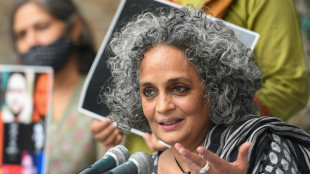 Indian writer Roy pulls out of Berlin Film Festival over Gaza row
Indian writer Roy pulls out of Berlin Film Festival over Gaza row
-
Conflicts turning on civilians, warns Red Cross chief
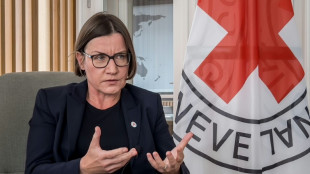
-
 Europe calls for US reset at security talks
Europe calls for US reset at security talks
-
Peru leader under investigation for influence peddling

-
 Rising star Mboko sets up Qatar Open final against Muchova
Rising star Mboko sets up Qatar Open final against Muchova
-
Canada PM to mourn with grieving town, new details emerge on shooter

-
 US waives Venezuela oil sanctions as Trump says expects to visit
US waives Venezuela oil sanctions as Trump says expects to visit
-
NBA star Chris Paul retires at age 40 after 21 seasons

-
 WTO chief urges China to shift on trade surplus
WTO chief urges China to shift on trade surplus
-
Vonn hoping to return to USA after fourth surgery on broken leg


Native Americans fear loss of Indigenous languages in US
As Native Americans this week celebrated Indigenous Peoples Day -- the holiday increasingly recognized in the United States in lieu of "Columbus Day" -- members of the continent's hundreds of tribes shared a common concern: the ongoing extinction of their ancestral languages.
The United States is currently home to 6.8 million Native Americans, or two percent of the population.
Members of the Shinnecock Nation on Long Island gathered for the sunrise to honor this week's holiday, which has been adopted by more than a dozen US states and cities amid the growing view that Italian explorer Christopher Columbus brought little more than genocide and colonization to the Americas in 1492.
And further north on the Atlantic Coast, people of the Americas and Caribbean ate together as they held discussions, danced and sang.
But while their ancestors saw their communities decimated by centuries of colonization, descendants today fear their culture and languages could be swallowed up in a single generation by English and Spanish.
Decrying "the invasion of the 21st century," Anthony Sean Stanton, the 64-year-old head of the Narragansett tribe, said his people must "hang onto what we got because once it's gone, it's gone forever."
Further west, the Lakota -- a prominent subculture of the Sioux, located primarily in North and South Dakota -- also fear the extinction of their language, currently spoken by 1,500 people, compared to 5,000 speakers two decades ago.
For many communities, including the Lakota, the generational transmission of languages halted around the mid-1980s, said linguist and activist Wilhelm Meya, who serves as president of The Language Conservancy (TLC) in Indiana.
There is "a very small window of opportunity to try to bring the language back before the last speakers of this language pass on. And this is a story that's replicated across hundreds of communities in North America," he said.
"We're in the forefront of trying to prevent this total collapse of Indigenous languages in North America."
- 'Hungry' for language -
According to TLC, some 2,900 languages of the approximately 7,000 spoken worldwide are endangered.
At this rate, the organization says, nearly 90 percent of all languages could become extinct in the next 100 years.
Native American languages are dying out at an even faster rate, according to the non-profit, with more than 200 already eradicated.
The best preservation strategy is to teach these languages in schools, says Meya, who notes that the federal government finally allowed communities to take up the practice in the early 1970s.
He also urges the development of other materials in the ancestral languages, including translating cartoon series and documentary films, as well as creating dictionaries and assisting with teacher trainings.
"Anything we can do to reach the young people who are very, very hungry for their language," Meya said. "They want their culture, they want their identity."
- 'Part of who I am' -
Miya Peters, an 18-year-old member of the Wampanoag tribe along the northeastern US coast, is one such example. She learns her language as part of a partnership between her tribal school and public school.
"I love it. It is hard. It's very different," she said. "But it's part of who I am. So it always just gives me that encouragement to just keep going and bring it back."
Meya and his colleague Travis Condon aim to continue the work of Kevin Locke, an ardent defender of his Lakota language and culture.
The 68-year-old flautist, hoop dancer and storyteller died suddenly on September 30.
"He was definitely a warrior for his tribe, you know, an ambassador for mankind," Meya said.
The linguist emphasized the need for federal investment in language preservation.
"It took the federal government 100 years and billions of dollars to eradicate Native American languages through the boarding school system," he said. "And it's gonna take equal amount of resources to bring back Indigenous languages in North America."
"It's much, much more difficult to create than it is to destroy."
M.Qasim--SF-PST

